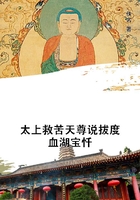When, in 1910, like several of its sister republics, Mexico celebrated the centennial anniversary of its independence, the era of peace and progress inaugurated by Porfirio Diaz seemed likely to last indefinitely, for he was entering upon his eighth term as President. Brilliant as his career had been, however, and greatly as Mexico had prospered under his rigid rule, a sullen discontent had been brewing. The country that had had but one continuous President in twenty-six years was destined to have some fourteen chief magistrates in less than a quarter of that time, and to surpass all its previous records for rapidity in presidential succession, by having one executive who is said to have held office for precisely fifty-six minutes!
It has often been asserted that the reason for the downfall of Diaz and the lapse of Mexico into the unhappy conditions of a half century earlier was that he had grown too old to keep a firm grip on the situation. It has also been declared that his insistence upon reelection and upon the elevation of his own personal candidate to the vice presidency, as a successor in case of his retirement, occasioned his overthrow. The truth of the matter is that these circumstances were only incidental to his downfall; the real causes of revolution lay deeprooted in the history of these twenty-six years. The most significant feature of the revolt was its civilian character. A widespread public opinion had been created; a national consciousness had been awakened which was intolerant of abuses and determined upon their removal at any cost; and this public opinion and national consciousness were products of general education, which had brought to the fore a number of intelligent men eager to participate in public affairs and yet barred out because of their unwillingness to support the existing regime.
Some one has remarked, and rightly, that Diaz in his zeal for the material advancement of Mexico, mistook the tangible wealth of the country for its welfare. Desirable and even necessary as that material progress was, it produced only a one-sided prosperity.
Diaz was singularly deaf to the just complaints of the people of the laboring classes, who, as manufacturing and other industrial enterprises developed, were resolved to better their conditions.
In the country at large the discontent was still stronger.
Throughout many of the rural districts general advancement had been retarded because of the holding of huge areas of fertile land by a comparatively few rich families, who did little to improve it and were content with small returns from the labor of throngs of unskilled native cultivators. Wretchedly paid and housed, and toiling long hours, the workers lived like the serfs of medieval days or as their own ancestors did in colonial times.
Ignorant, poverty-stricken, liable at any moment to be dispossessed of the tiny patch of ground on which they raised a few hills of corn or beans, most of them were naturally a simple, peaceful folk who, in spite of their misfortunes, might have gone on indefinitely with their drudgery in a hopeless apathetic fashion, unless their latent savage instincts happened to be aroused by drink and the prospect of plunder. On the other hand, the intelligent among them, knowing that in some of the northern States of the republic wages were higher and treatment fairer, felt a sense of wrong which, like that of the laboring class in the towns, was all the more dangerous because it was not allowed to find expression.
Diaz thought that what Mexico required above everything else was the development of industrial efficiency and financial strength, assured by a maintenance of absolute order. Though disposed to do justice in individual cases, he would tolerate no class movements of any kind. Labor unions, strikes, and other efforts at lightening the burden of the workers he regarded as seditious and deserving of severe punishment. In order to attract capital from abroad as the best means of exploiting the vast resources of the country, he was willing to go to any length, it would seem, in guaranteeing protection. Small wonder, therefore, that the people who shared in none of the immediate advantages from that source should have muttered that Mexico was the "mother of foreigners and the stepmother of Mexicans." And, since so much of the capital came from the United States, the antiforeign sentiment singled Americans out for its particular dislike.
If Diaz appeared unable to appreciate the significance of the educational and industrial awakening, he was no less oblivious of the political outcome. He knew, of course, that the Mexican constitution made impossible demands upon the political capacity of the people. He was himself mainly of Indian blood and he believed that he understood the temperament and limitations of most Mexicans. Knowing how tenaciously they clung to political notions, he believed that it was safer and wiser to forego, at least for a time, real popular government and to concentrate power in the hands of a strong man who could maintain order.
Accordingly, backed by his political adherents, known as cientificos (doctrinaires), some of whom had acquired a sinister ascendancy over him, and also by the Church, the landed proprietors, and the foreign capitalists, Diaz centered the entire administration more and more in himself. Elections became mere farces. Not only the federal officials themselves but the state governors, the members of the state legislatures, and all others in authority during the later years of his rule owed their selection primarily to him and held their positions only if personally loyal to him. Confident of his support and certain that protests against misgovernment would be regarded by the President as seditious, many of them abused their power at will.













